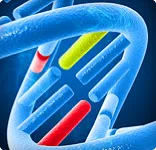



- Viagra
- Sildenafil Citrate (TP)
- Sildenafil Citrate TEVA
- Tadalafil TEVA
- Tadalafil ACCORD
- Tadalafil DAILY
- Vardenafil TEVA
- Vardenafil ZYDUS
- Sildenafil Citrate (GS)
- Cialis
|
New Genetic Clues to Ovarian Cancer
2011-06-30
|
New Genetic Clues to Ovarian Cancer

June 29, 2011 -- Multiple genetic mutations appear to be involved in the development of ovarian cancer, according to a new large-scale analysis of tumor samples.
Researchers from the Cancer Genome Atlas Research Network looked at 489 high-grade serous ovarian adenocarcinomas (HGS-OvCa). These are a kind of epithelial ovarian cancer, the most common kind.
Ovarian cancer is the fifth-leading cause of cancer death among U.S. women, the researchers write in the journal Nature.
Nearly 22,000 new cases were found in the U.S. in 2010, according to estimates. Nearly 14,000 U.S. women died from the cancer last year, the researchers report.
After analyzing the samples, the researchers found that mutations in a gene known as TP53 predominated. It was found in 96% of the tumor samples.
However, the researchers found mutations in nine other genes, including NF1, BRCA1 and BRCA2, RB1, and CDK12. BRCA1 and BRCA2 were mutated in 22% of the samples. The other seven mutated genes identified were only found in 2% to 6% of the samples.
''The mutation spectrum marks HGS-OvCa as completely distinct from other ovarian cancer histological subtypes," the researchers write.
Future Treatment Possibilities
Differences in survival varied by type of mutation. For instance, those with BRCA1/2 mutated cases had higher overall survival than those with BRCA1/2 wild type.
By uncovering the genetic mutations underlying different ovarian cancer subtypes, the hope is to pave the way for better, targeted treatments.
Ovarian cancer often has vague symptoms. For that reason, the disease is often diagnosed at advanced stages.
A woman should see her doctor if she has daily symptoms of bloating, feeling full quickly, difficulty eating, or pelvic or abdominal pain for more than a few weeks.
Women ages 55 and older are at higher risk. Women who give birth earlier and have multiple children are at lower risk than those who do neither. Women with a personal history of breast cancer or a family history of breast or ovarian cancer are at increased risk of ovarian cancer.





